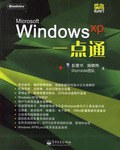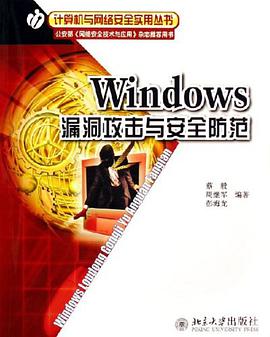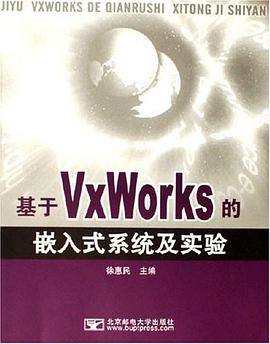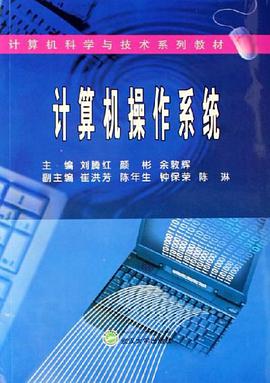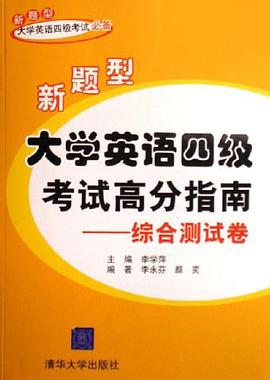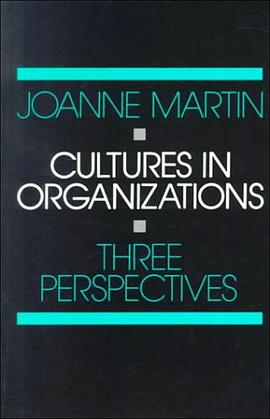

具体描述
This is essentially a textbook in organizational culture. But, unlike most textbooks authors, Professor Martin is making a contribution to the field in that she focuses on a way of looking at the field that is new. In the past, those who have studied organizational culture have usually done so from one of three perspectives: 1) "Integration" - all members of an organization share a consensus of values and purpose; 2) "Differentiation" - there are frequent conflicts among groups in organizations with limited consensus; 3) "Fragmentation" - there is considereable ambiguity in organizations with consensus coexisting with conflict, and much change among groups. The author argues that the best way to view organizations is to see them through all three perspectives - each revealing a different kind of truth. The author has done extensive research studying the organizational culture of a large California high technology firm (which is not identified in the book). She interviewed many employees at different levels and in different departments, and used surveys to extend the interviews. Her work is like an ethnography in which the researcher's own perspectives and cultural norms have to be accounted for. As a result, the book explores what she learned from her studies and how she learned it.
作者简介
目录信息
读后感
评分
评分
评分
评分
用户评价
这本书给我的整体感受是,它对“组织文化”这个概念的解构与重塑,提供了一个相当有深度且不落俗套的视角。我原以为会是一本充斥着流行管理术语和成功学案例的读物,但它却在相当程度上避开了这些,转而从更本质的层面去审视文化的力量。作者花了大量篇幅去阐述文化如何形成、如何传播,以及它如何内化为组织成员的认知和行为习惯,这一点我非常赞赏。它不是简单地告诉你“要建立积极的企业文化”,而是深入探究了这种“积极”背后所依赖的深层机制。书中对于文化与战略、文化与创新、文化与变革等议题的探讨,也给我留下了深刻的印象。我特别感兴趣的是关于“亚文化”的部分,它揭示了在一个看似统一的组织内部,可能存在着多种并存的、甚至相互冲突的文化形态,而管理者如何去理解和管理这些亚文化,是至关重要的。我希望书中能有更多关于如何识别和诊断这些亚文化的内容,例如,通过哪些指标可以判断一个亚文化是具有建设性的,还是具有破坏性的?以及,对于那些可能阻碍组织发展的亚文化,应该如何进行干预和引导?此外,书中对“文化冲突”的处理也进行了讨论,但这些讨论似乎更多停留在理论层面,我渴望能看到更具体的策略,例如,当两个部门因文化差异而产生矛盾时,管理者应该如何介入,才能有效地化解冲突,而不是简单地压制矛盾。尽管如此,这本书的价值在于它提供了一个反思的框架,让我能够跳出表面的“公司文化建设”,去思考更深层次的、影响组织长远发展的文化根源。
评分我曾以为这本书会是一本关于“跨文化管理”的实用指南,里面会充斥着各种文化差异的案例分析,以及在不同文化背景下,如何与员工沟通、激励和领导的技巧。我期待能从中找到如何在全球化的浪潮中,建立一个真正具有包容性和协作性的跨国团队的方法。例如,如何理解不同文化下的时间观念、工作方式、以及决策风格,并据此调整自己的管理策略。然而,当我开始阅读后,我发现这本书的野心远不止于此。它将“文化”作为一个更普遍的、存在于所有组织中的现象来探讨,而不仅仅是地域性的文化差异。它深入分析了组织文化是如何从根本上塑造了员工的价值观、归属感,以及他们在工作中的行为模式。我尤其欣赏书中对于“文化认同”的论述,它让我意识到,一个强大的组织文化,能够有效地凝聚员工,形成一种共同的使命感和归属感。我希望能进一步了解,如何通过一系列的文化实践,来构建这种强大的文化认同,从而让员工在面对挑战时,能够同心同德,共同前进。尽管书中并未直接提供“跨文化沟通技巧大全”,但它让我看到了,无论在何种文化背景下,理解和塑造组织内部的文化,都是实现有效管理的基石。
评分我最初被这本书吸引,是因为我正面临着一个关于企业文化转型的问题,我急切地需要一本能够提供实际指导的书籍,帮助我厘清思路,并找到切实可行的解决方案。我期望书中能够涵盖如何诊断企业文化中的症结,如何制定文化转型的战略,以及如何在实施过程中有效管理变革。然而,阅读过程中,我发现这本书更多的是在探讨“组织文化”这一概念的理论基础和哲学内涵。它深入地分析了文化如何渗透到组织的各个层面,如何影响员工的思维方式和行为模式,以及这种影响的深远性。我不得不承认,书中对于文化影响力的洞察是相当深刻的,它让我意识到,许多看似是技术或管理上的问题,其根源往往在于组织文化。我尤其关注书中关于“文化与领导力”的章节,它深刻地阐述了领导者在塑造和维护组织文化中的核心作用。但我依然觉得,书中对于领导者应该采取的具体行动,以及如何衡量文化转型的成效,仍然不够详尽。我渴望能看到更多关于“如何做”的建议,例如,领导者应该如何与员工进行有效的沟通,以建立信任和共识?如何通过具体的激励机制来鼓励员工拥抱新的文化?如何建立一套有效的评估体系,来追踪文化转型的进展和成效?虽然这本书并未直接提供“操作手册”,但它无疑提供了一个更宏观的视角,让我能够从根本上理解组织文化的重要性,并为后续的实践打下了理论基础。
评分我带着解决“团队协作效率低下”这一现实问题的迫切需求,翻开了这本书。我期望它能像一份详细的诊断报告,能够精准地找出团队协作不畅的文化根源,并给出切实可行的改进方案。我设想书中会有关于团队动力学、沟通模式、冲突管理等方面的具体分析,以及如何通过文化层面的调整来提升团队凝聚力和执行力。然而,这本书的内容,更侧重于对“组织文化”这一概念的深度挖掘和理论梳理。它详细阐述了文化如何从宏观层面影响着组织的每一个细胞,包括个体员工的思维方式、行为习惯,以及他们之间的互动模式。我尤其被书中关于“共同价值观”在维系组织凝聚力方面的重要性的论述所打动。我希望能进一步了解,如何在团队内部,通过具体的活动和沟通,去构建和强化这些共同价值观,从而让团队成员在目标上更加一致,在行动上更加协同。虽然书中并未直接提供“团队协作提升指南”,但它让我意识到,许多团队协作的问题,并非是简单的技能或流程上的不足,而是深植于组织文化的土壤之中。它提供了一个反思的框架,让我能够跳出眼前的“症状”,去探究更深层次的“病因”。
评分我购买这本书,是出于对“如何激发员工的创新活力”这一难题的求解。我原本期待它能提供一套关于如何构建创新文化、如何鼓励员工提出新想法、如何将创意转化为实际产品的具体方法论。我设想书中会有关于鼓励试错、容忍失败、以及奖励创新的策略,甚至是一些激发员工创造力的“头脑风暴”技巧。然而,这本书所呈现的内容,远超出了我最初的设想,它将“文化”置于一个更加广阔的视野下进行审视。它不仅探讨了文化如何影响创新,更深入地分析了文化作为一种无形的力量,如何塑造了组织的整体氛围,以及这种氛围如何潜移默化地影响着员工的行为和思维。我尤其欣赏书中对于“拥抱变革”的文化基因的探讨,它让我意识到,创新并非是孤立的事件,而是需要一种能够拥抱变化、持续学习的文化作为支撑。我期待能够看到更多关于如何培养这种“变革文化”的具体实践,例如,如何通过领导者的言传身教,如何通过组织制度的设计,如何通过员工的赋权,来营造一个鼓励探索和创新的环境。尽管书中并未直接提供“创新激励手册”,但它让我看到了,激发员工创新活力的关键,在于构建一个与之相适应的、开放包容的组织文化。
评分坦白说,我怀揣着极大的期待打开了这本书,希望它能成为我解决组织中棘手文化问题的“圣经”。我期盼能从中找到切实可行的方法,来应对那些“文化病”,比如员工缺乏归属感、团队协作不畅、创新氛围不足等等。然而,这本书的叙述风格,似乎更偏向于学术研究的严谨性,而非实践指导的直接性。它花了相当多的篇幅去探讨“什么是文化”,以及“文化是如何形成的”,这对于理解文化的原点固然重要,但对于我这样急需“解决方案”的读者来说,则显得有些“远水救不了近火”。我希望能够看到更多关于“如何做”的内容,例如,如何通过具体的行动去改变员工的态度?如何设计一套有效的激励机制来鼓励创新?如何建立一个开放的沟通平台来促进信息流动?书中对“文化变革”的讨论,虽然触及了话题,但更多的是对变革的挑战和阻碍进行了深刻的剖析,对于如何克服这些挑战,具体的步骤和策略却着墨不多。我期待能看到一些“行动清单”或者“评估工具”,能够帮助我诊断组织当前面临的文化问题,并根据诊断结果,制定出有针对性的改进计划。而且,书中提及的案例,虽然有一定启发性,但往往比较宏观,缺乏细节,我很难从中提炼出适用于我自身情境的具体做法。总而言之,这本书更像是一本“思想启蒙”读物,它让我对组织文化有了更深层次的理解,但它并未能提供给我一套可以直接套用的“操作手册”。我仍然需要花费大量的时间和精力,去将书中的理论转化为实践,这对我来说,是一项不小的挑战。
评分一本关于组织文化设计的入门读物,我本以为会 delving into 实际操作层面的指导,比如如何识别、分析并最终重塑一个公司的文化基因。然而,本书更多的是从宏观视角出发,探讨了文化作为一个概念在组织层面的意义,以及它如何潜移默化地影响着员工的行为模式、决策机制乃至整体的战略走向。我期望能看到一些具体的案例分析,例如某个公司如何通过成功的文化转型实现了业务增长,或者某个失败的案例提供了怎样的警示。书中对“文化”本身的定义和理论框架的梳理倒是相当详尽,涉及了人类学、社会学等多个学科的观点,这为理解组织文化提供了一个坚实的学术基础。但对于像我这样更倾向于落地实践的读者来说,这些理论上的铺陈有时显得有些过于抽象,我希望能够看到更多关于“如何做”的指导,而非仅仅是“是什么”。书中也提到了领导者的角色在塑造文化中的重要性,但我期待的不仅仅是“领导者要重视文化”,而是具体到领导者在不同情境下,应该采取哪些具体的沟通策略、激励机制,甚至是在招聘和绩效评估中如何融入文化考量。我尝试从中寻找一些 actionable insights,但似乎更多的是一种概念上的启迪。如果本书能在一半的篇幅中,深入解析几个典型的组织文化案例,并分析其成因、演变过程以及对组织绩效的具体影响,那么它将更有说服力和实用价值。目前来看,它更像是一本为组织行为学或管理学专业学生准备的理论教材,而非一本面向广大管理者和HR专业人士的实操指南。我期待的,是那种读完之后,能够立刻在自己的工作岗位上有所启发,并能尝试实施一些改变的书籍,这本书目前还未完全达到我的预期。
评分我购买这本书,是希望能够找到一些关于“如何有效管理组织变革”的实操性建议。我正面临着公司进行一次大规模的战略调整,而我深知,文化是影响变革成功与否的关键因素。我期待书中能够提供关于如何诊断变革阻力、如何与员工沟通变革的必要性、以及如何引导员工适应新文化的内容。然而,当我深入阅读后,我发现这本书的视角更为宏大,它并非直接聚焦于“变革管理”,而是将“组织文化”作为一种核心驱动力来审视。它深入地剖析了文化如何从根本上塑造了组织的认知模式和行为惯性,以及这种惯性如何成为变革的强大阻碍。我尤其关注书中关于“文化惯性”的论述,它让我意识到,许多变革的失败,并非是因为策略本身的问题,而是未能有效地触及并改变组织深层的文化基因。我希望能进一步了解,如何通过一系列的文化干预措施,来打破这种惯性,从而为变革的成功奠定基础。尽管书中并未直接提供“变革管理步骤指南”,但它让我看到了,有效的组织变革,其关键在于深刻理解和积极引导组织文化的演变。
评分这本书的封面设计和标题,让我以为会是一场关于不同地域、不同民族文化如何在跨国企业中碰撞与融合的生动叙述。我脑海中勾勒出的画面,是充满异域风情的故事,是不同文化背景下的员工如何在合作中克服障碍,最终实现共赢的励志情节。然而,当我深入阅读后,才发现这本书的视角远比我最初的想象要更为广阔和深刻。它并非简单地罗列不同地域的文化差异,而是将“文化”作为一个贯穿于组织生命周期的核心要素来审视。它探讨了文化如何塑造组织的愿景和使命,如何影响员工的价值观和行为规范,甚至是如何决定一个组织在面对市场变化时所能做出的反应。我非常欣赏书中对于“文化同质化”和“文化多样性”的辩论,以及作者如何辩证地看待这两种现象。我希望能够看到更多关于如何在保持组织核心价值观的同时,又能尊重并激发个体和群体多样性的具体方法。书中对于“企业文化落地”的讨论,也让我若有所思,它指出,再好的文化理念,如果不能渗透到日常的工作流程和员工的行动中,也只是空中楼阁。我期待能看到更多关于如何设计有效的文化落地机制,例如,如何通过培训、沟通、考核等多种手段,将文化理念转化为员工自觉的行为。尽管书中并未直接提供“步骤指南”,但它所提出的思考框架,无疑为我打开了新的视野,让我能够从更根本的层面去理解和应对组织文化所带来的挑战。
评分在我翻开这本书之前,我心中构想的是一本关于如何在多元文化背景下构建有效组织沟通的“工具箱”。我曾以为它会聚焦于不同国家、不同民族的沟通风格差异,并提供一系列实用的技巧和策略,帮助我在跨文化交流中避免误解,达成共识。例如,如何理解不同文化下的非语言信号,如何调整自己的沟通方式以适应对方的习惯,以及如何在团队协作中建立跨文化的信任。然而,这本书的格局显然更为宏大,它并没有将目光局限于表面的沟通方式,而是将“文化”置于组织的核心位置,探讨它如何从根本上塑造组织的运作模式。它深入剖析了文化作为一种隐形的力量,是如何影响着员工的价值观、工作伦理,以及他们对团队和组织的认同感。我尤其欣赏书中对于“组织文化适应性”的探讨,它揭示了在快速变化的环境中,一个具有高度适应性的组织文化是多么重要。我期待能够看到更多关于如何培养这种适应性文化的具体方法,例如,如何鼓励员工勇于尝试新事物,如何容忍合理的试错,以及如何建立一个能够从反馈中不断学习和改进的机制。尽管书中并未直接给出“跨文化沟通技巧手册”,但它提供了一个全新的视角,让我能够从更深层次去理解文化在组织中的作用,并认识到,有效的跨文化沟通,其根本在于对组织文化深层内涵的理解和尊重。
评分管理学
评分管理学
评分管理学
评分管理学
评分管理学
相关图书
本站所有内容均为互联网搜索引擎提供的公开搜索信息,本站不存储任何数据与内容,任何内容与数据均与本站无关,如有需要请联系相关搜索引擎包括但不限于百度,google,bing,sogou 等
© 2026 book.quotespace.org All Rights Reserved. 小美书屋 版权所有



